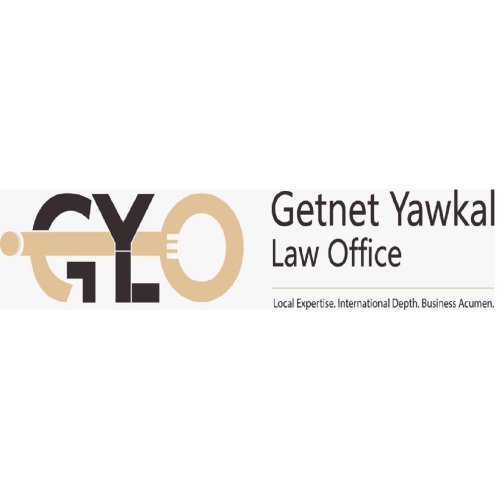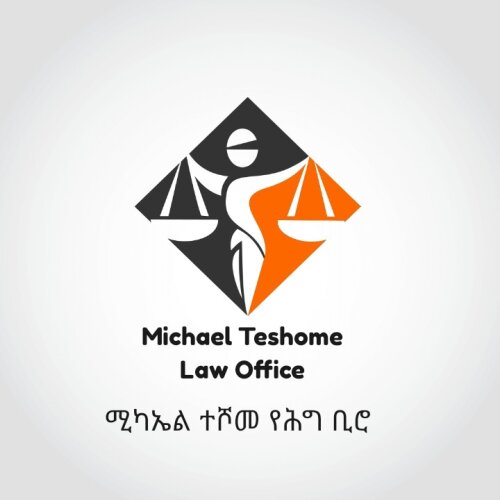Best Tax Increment Financing Lawyers in Addis Ababa
Share your needs with us, get contacted by law firms.
Free. Takes 2 min.
List of the best lawyers in Addis Ababa, Ethiopia
About Tax Increment Financing Law in Addis Ababa, Ethiopia
Tax Increment Financing (TIF) is a public financing method that is used to subsidize infrastructure and community improvement projects in Addis Ababa, Ethiopia. It is a mechanism that is intended to stimulate economic development by using future incremental tax revenues to finance current improvements and developments. TIF aims to revitalize neighborhoods, encourage investments, and enhance public infrastructure. In Addis Ababa, the implementation of TIF is guided by local regulations and frameworks designed to ensure equitable development and prudent financial management.
Why You May Need a Lawyer
There are several scenarios where engaging a lawyer might be essential when dealing with Tax Increment Financing in Addis Ababa:
- Understanding Legal Obligations: A lawyer can help explain the statutory requirements and obligations under TIF agreements.
- Contract Negotiation: Legal expertise is often needed in negotiating terms within TIF contracts to ensure they are fair and valid.
- Dispute Resolution: If disputes arise between stakeholders, having legal representation can be crucial for resolving conflicts efficiently.
- Regulatory Compliance: Ensuring ongoing compliance with local TIF laws requires an understanding of complex legal frameworks, for which a lawyer's guidance can be invaluable.
- Project Approval Process: A lawyer can assist in navigating through the bureaucratic procedures and approvals needed for TIF projects.
Local Laws Overview
The administration of Tax Increment Financing in Addis Ababa is subject to specific rules and regulations under local jurisdiction. Key aspects include:
- Eligibility Criteria: Projects eligible for TIF funding typically must demonstrate potential public benefits and compliance with city development plans.
- Valuation of Increment: The calculation of tax increment is based on the increase in property value resulting from the development.
- Bond Issuance: Regulations around the issuance of municipal bonds to support TIF enable transparency and fiscal responsibility.
- Development Agreements: Legally binding agreements are enforced to ensure project milestones are met and public benefits realized.
- Public Involvement: There is often a requirement for public consultation and involvement in TIF project planning.
Frequently Asked Questions
What is Tax Increment Financing?
Tax Increment Financing is a strategy that uses the future tax revenue increases from a designated area to finance current investments and development projects.
Who can benefit from TIF in Addis Ababa?
Developers, municipal bodies, and local communities can benefit, as TIF facilitates infrastructural improvements that can drive economic growth.
How is the tax increment calculated?
The tax increment is calculated on the increase in property tax revenues that result from the rise in property values due to the TIF-backed development.
Are there specific areas where TIF is applied in Addis Ababa?
Yes, TIF is usually applied in designated areas identified by municipal authorities where redevelopment or revitalization is needed.
What are the typical projects funded by TIF?
Projects include infrastructure upgrades, public utilities, affordable housing, and commercial developments that promise long-term public benefits.
How do I know if a project is eligible for TIF?
Eligibility is determined based on criteria set by municipal authorities, usually focusing on projects that provide significant public benefits or fulfill economic development goals.
How long does a TIF district remain in place?
TIF districts usually have a fixed timeframe, often between 15 to 25 years, depending on the project agreements and local regulations.
Can residential projects qualify for TIF?
Yes, residential projects that contribute to urban revitalization, such as affordable housing, can qualify for TIF funding.
What happens if the tax increment is insufficient to cover project costs?
If the increment is insufficient, additional funding strategies may need to be explored, or the project terms adjusted in agreement with all stakeholders.
Is community input considered in TIF plans?
Community input is an important component of the TIF process, with public consultations often required during the planning stages.
Additional Resources
For further information and assistance regarding Tax Increment Financing in Addis Ababa, consider reaching out to these resources:
- Addis Ababa City Administration: Municipal body responsible for urban planning and management.
- Ministry of Urban Development and Construction: Offering insights into national urban development regulations.
- Investment Commission of Ethiopia: Provides guidelines and support for infrastructure investment projects.
- Local Legal Firms: Firms specializing in investment, real estate, and urban development law.
Next Steps
If you need legal assistance or advice on Tax Increment Financing in Addis Ababa, follow these steps:
- Consult a Lawyer: Seek advice from a lawyer who specializes in property and investment law to navigate the complexities of TIF.
- Research: Gather information on TIF projects and relevant laws to better understand your obligations and rights.
- Engage with Authorities: Contact local government offices to obtain necessary permits and approvals for your project.
- Public Consultation: Engage with community stakeholders to ensure your project aligns with public interests and benefits.
Lawzana helps you find the best lawyers and law firms in Addis Ababa through a curated and pre-screened list of qualified legal professionals. Our platform offers rankings and detailed profiles of attorneys and law firms, allowing you to compare based on practice areas, including Tax Increment Financing, experience, and client feedback.
Each profile includes a description of the firm's areas of practice, client reviews, team members and partners, year of establishment, spoken languages, office locations, contact information, social media presence, and any published articles or resources. Most firms on our platform speak English and are experienced in both local and international legal matters.
Get a quote from top-rated law firms in Addis Ababa, Ethiopia — quickly, securely, and without unnecessary hassle.
Disclaimer:
The information provided on this page is for general informational purposes only and does not constitute legal advice. While we strive to ensure the accuracy and relevance of the content, legal information may change over time, and interpretations of the law can vary. You should always consult with a qualified legal professional for advice specific to your situation.
We disclaim all liability for actions taken or not taken based on the content of this page. If you believe any information is incorrect or outdated, please contact us, and we will review and update it where appropriate.

















